I went on the Oxford Study Tour this year expecting to learn a lot, see historic places and meet fellow seminarians. I didn’t know God would give me so much more: deep friendships, a new way of thinking about history and the world and a deeper appreciation for the way God works through people and places to bring about His purposes. Here are five things I learned on the Oxford Study Tour that changed my thinking — and five reasons you should go next year.
What do I believe? Why do I believe it? The Oxford Study Tour gives us opportunities to think these things through in fresh ways.
1. How to think about the Great Commission
It is one thing to hear from someone about church planting efforts in London or ministry to disadvantaged communities in Scotland; it is another thing entirely to meet those people, sit in their churches and learn firsthand the joys and struggles of their ministry. We learned about ministry methods, local contexts and ways to be a good neighbor that I had not been exposed to before. Meeting the people in the U.K. expanded my definition of success in ministry. We also worshiped alongside our English and Scottish brothers and sisters who showed us extraordinary hospitality.
Now, when I pray for these ministries, I have tangible memories of time with their people. I can now pray with more empathy and a deeper understanding than if I had heard about them from afar.
-
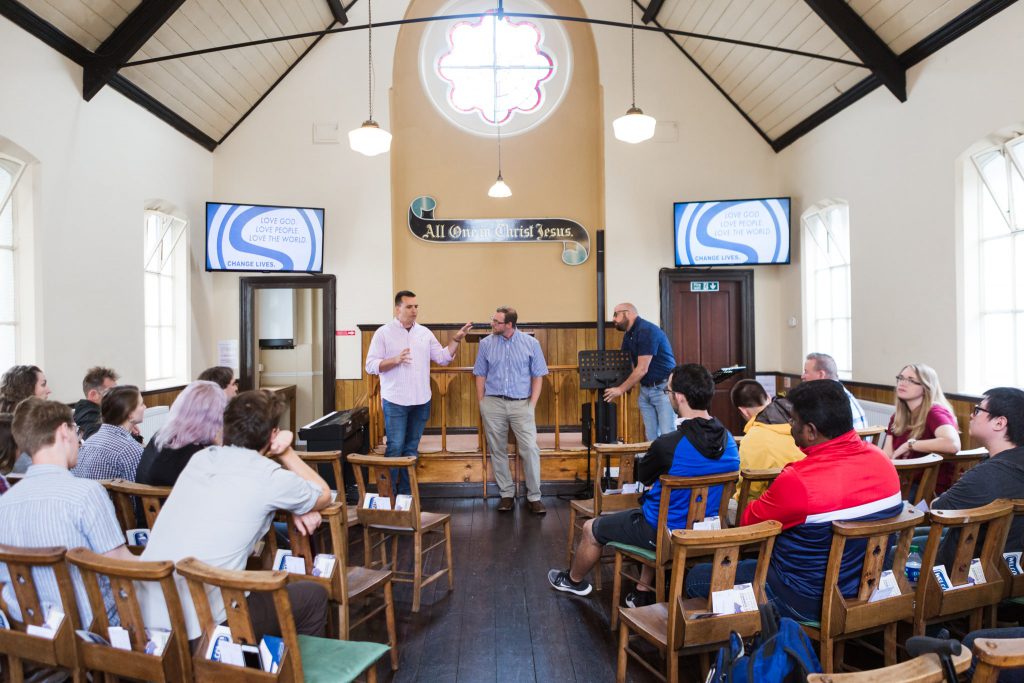
Southside Baptist Church
2. The power of being present in a particular place
Many people in my faith tradition are familiar with one of my heroes of the faith, Charles Spurgeon, and the story of his conversion.[1] One day a teenage Spurgeon was walking to church in a perilous snowstorm, and he decided to go into the first church he found, at that time a small Primitive Methodist church. The fierce snow prevented even the pastor from arriving to church, so someone from the congregation arose and preached a short sermon on Isaiah 45:22: “Look unto me, and be ye saved, all the ends of the earth: for I am God, and there is none else.” Spurgeon finally understood how to be saved, that looking to Christ was all that he needed. His life was changed from that moment on. Spurgeon’s life left an overwhelming legacy on the English-speaking evangelical world, and God in his providence used a simple presentation of the Word and a snowstorm to bring it about.
On the Oxford Study Tour, I sat in the very place where God transformed young Spurgeon’s heart and heard his own words read aloud relaying the miracle that had taken place there. The experience was made more real to me than ever before.
In Oxford, I walked around Magdalen College where C. S. Lewis taught. I walked the same path that he and J. R. R. Tolkien often tread and where the two of them had a conversation that led to Lewis’ salvation. Another day, the group traveled to Kettering, England and saw the sites that were instrumental in William Carey, Andrew Fuller and others founding the Baptist Missionary Society. Being immersed in such historical locations brings a new dimension to learning.
-
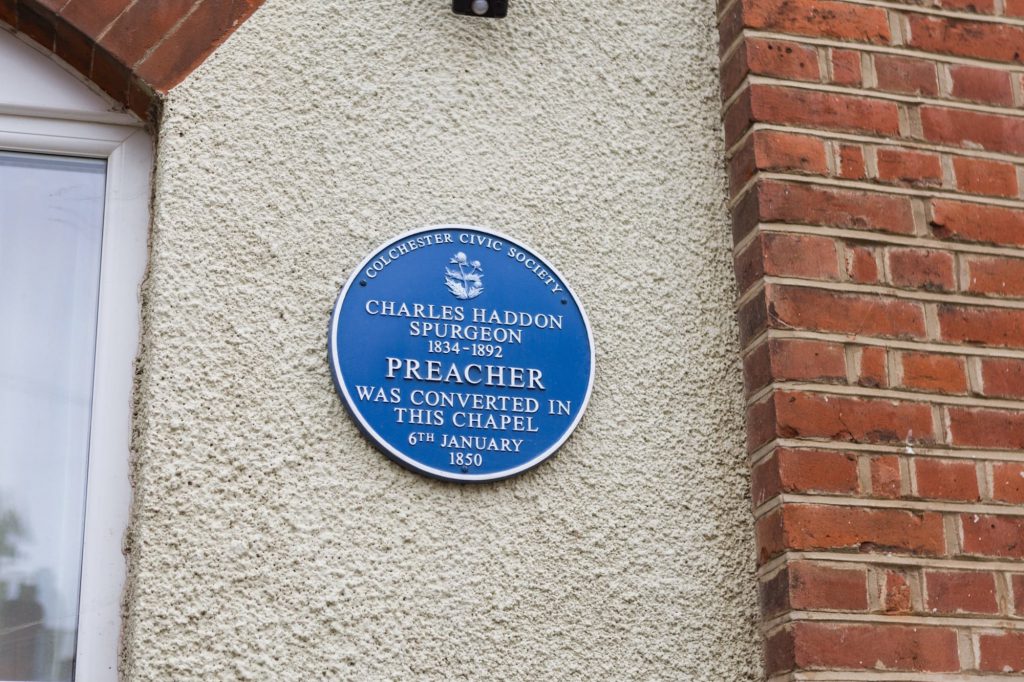
Artillery Street Evangelical Church, the site of Charles Spurgeon’s conversion
3. The importance of a legacy of dissent
One of my favorite sites was the dissenter’s graveyard in London. This graveyard is the resting place of men and women (like John Bunyan and Susannah Wesley) whose beliefs did not conform to the state church of the time. Here we learned about the sacrifice people made to hold beliefs out of conviction rather than giving in to the state-sanctioned religion. We talked about how every culture and time period has its own culturally influenced interpretation of the Bible, including ours.
We Baptists in the U.S. still continue a legacy of dissent today – not from a state church but from a culture that glorifies self at the expense of God and His Word. How will we treat other believers with whom we disagree? Will we repeat the mistakes of the past, siloing ourselves off from brothers and sisters who disagree with us on tertiary issues, doing to others what our Baptist ancestors had done to them? Will we return violence for violence, as our Protestant forerunners sometimes did? Or will we treat others with charity and understanding, knowing that the bonds of unity in Christ are stronger than cultural disagreements?
-
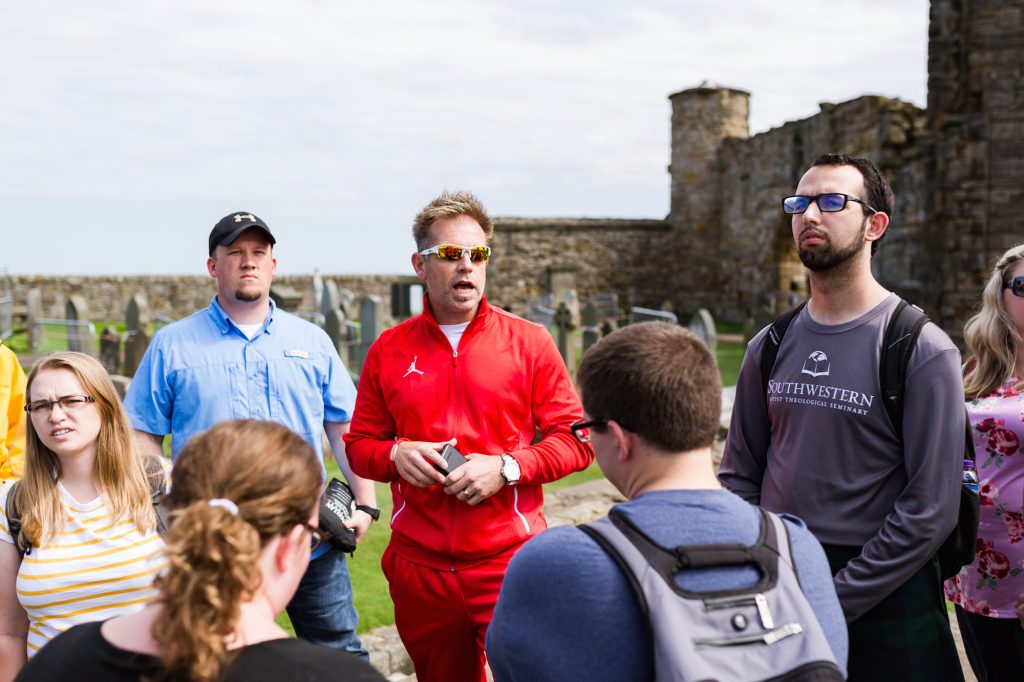
At St. Andrews Cathedral
4. The significance of doctrinal commitment at high cost
Reflecting on our own faith and what price we would be willing to pay for it was a recurring theme throughout the Oxford Study Tour. Dr. Eccher encouraged us to ask ourselves tough questions: What do I believe? Why do I believe it? The trip gives us opportunities to think these things through in fresh ways.
For example, as we see and learn about state churches and state persecution in the past, we must ask ourselves: What do I believe about separation of church and state? When we see where people were publicly baptized at the risk of imprisonment, we ask ourselves: Would I have been willing to risk arrest for the sake of believer’s baptism even though I would have already been baptized as an infant into the state church? When we see the places in Oxford, St. Andrews, Edinburgh and elsewhere where people like Thomas Cranmer and George Wishart were martyred, we ask ourselves: What price am I willing to pay for the gospel? We must examine our beliefs and our commitments in light of the historical realities that we learn about on the Oxford Study Tour, and we must do this before we find ourselves in a situation where we may very well have to decide.
-
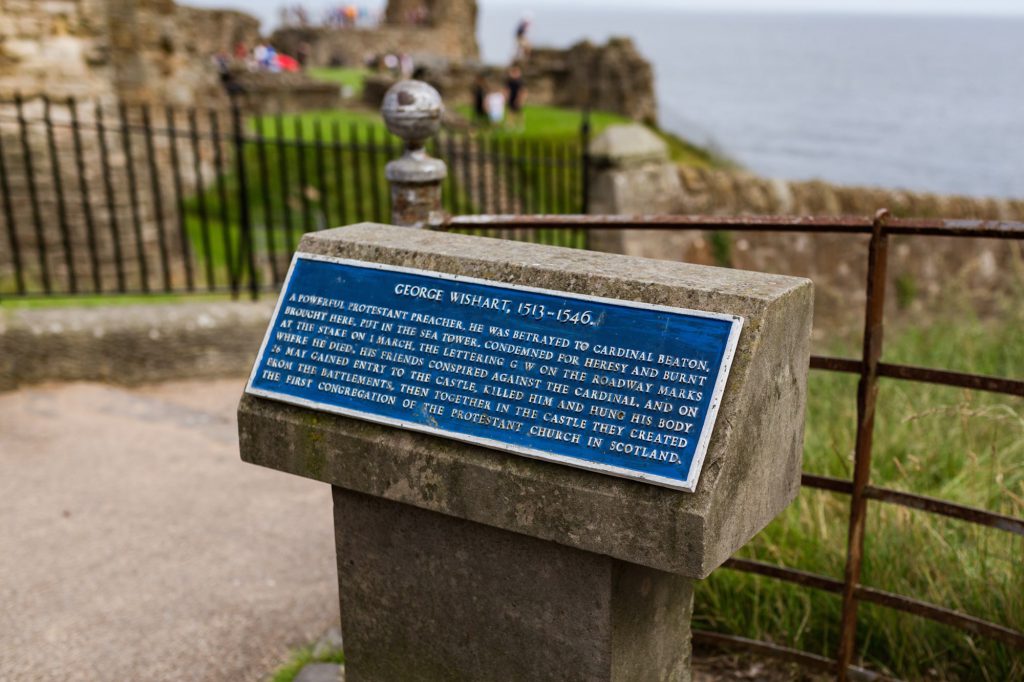
The site of a Protestant martyrdom.
Traveling in the context of a community of like-minded believers is a learning experience like no other.
5. The bond of brothers and sisters in Christ
Traveling in the context of a community of like-minded believers is a learning experience like no other. Though only a few people on the trip knew each other beforehand, in a very short time our group was bonded together by our shared experiences, shared interests and most importantly our sharing in the Holy Spirit. Getting to know the other students and professors was one of the best and most formative parts of the trip. We learned from each other, prayed for each other, and built up each other. I am so thankful for the opportunity to learn in a community of students from multiple seminaries and spur each other on to Christlikeness and mission through the Oxford Study Tour.
-
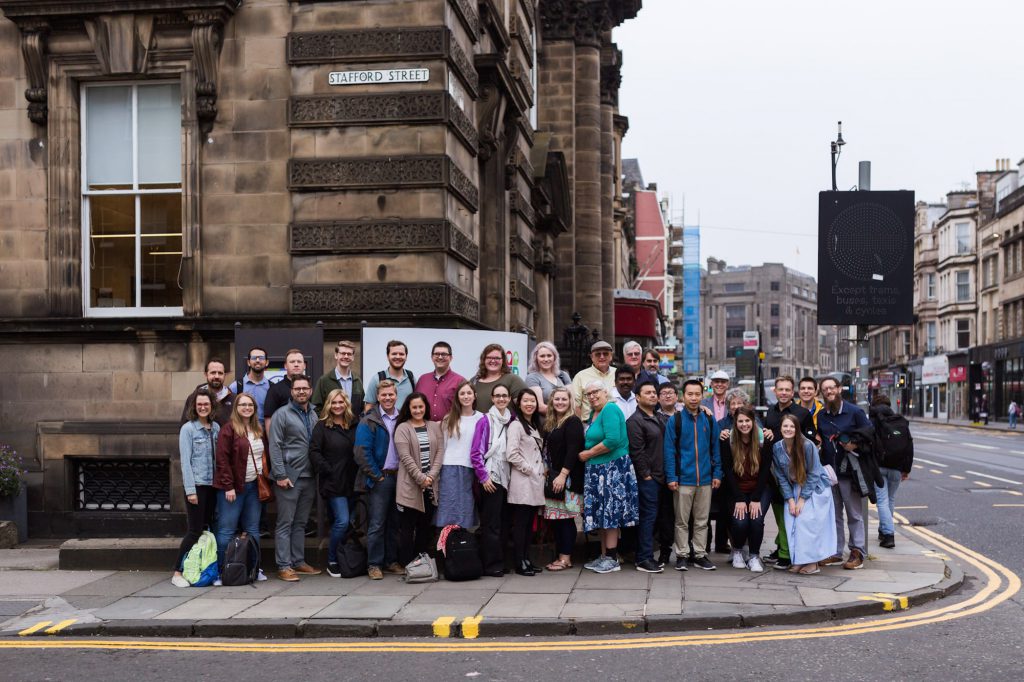
The Oxford Study Tour of 2019
I gained more out of the Oxford Study Tour than I could have imagined. For any student wanting to immerse him- or herself in a learning environment unlike any other and have their thinking and character challenged and grown, the Oxford Study Tour is for you. You will leave having received so much, and you will be ready to give back to your studies and the church in new ways.
[1] For a fuller account of Spurgeon’s conversion, see http://archive.spurgeon.org/misc/bio2.php
Learn more about the Oxford Study Tour.
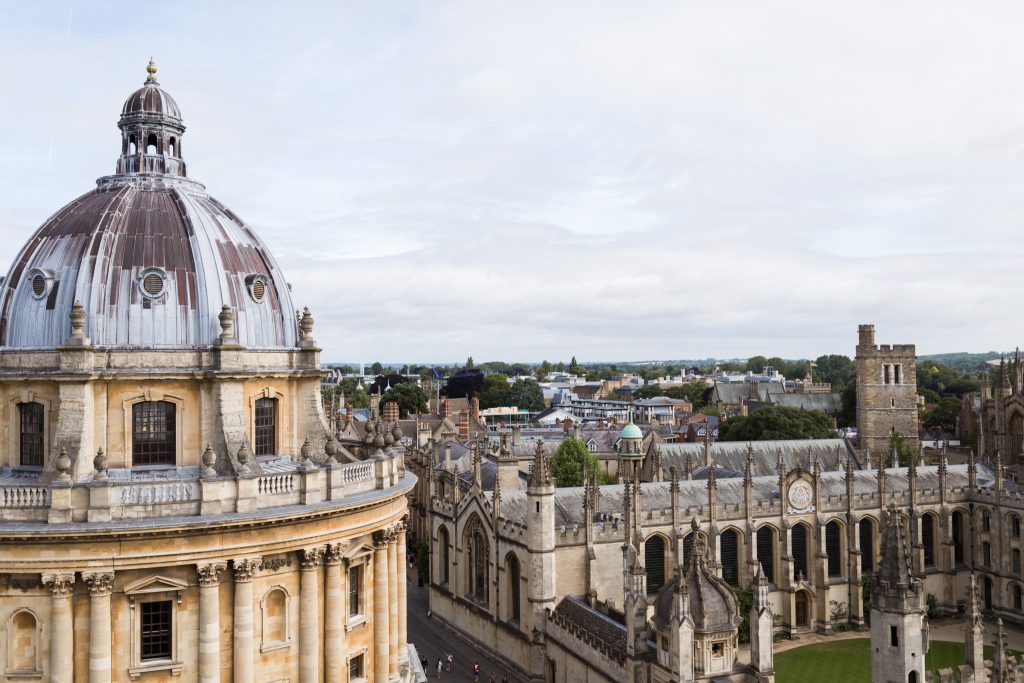





Comments and Pingbacks
2019-09-20 09:43:51
#FaithandCulture Reading: Beyond Burnout, A Redemptive Pro-Life Option, Passing the Baton | Intersect
[…] journey together to the Oxford Study Tour. A few weeks ago, Rebecca Hankins shared on Intersect how the trip changed her. In this article, Julie Owens from Southwestern Seminary writes about the trip as well. […]